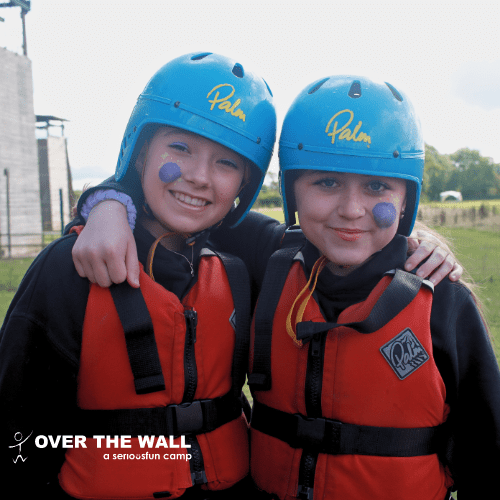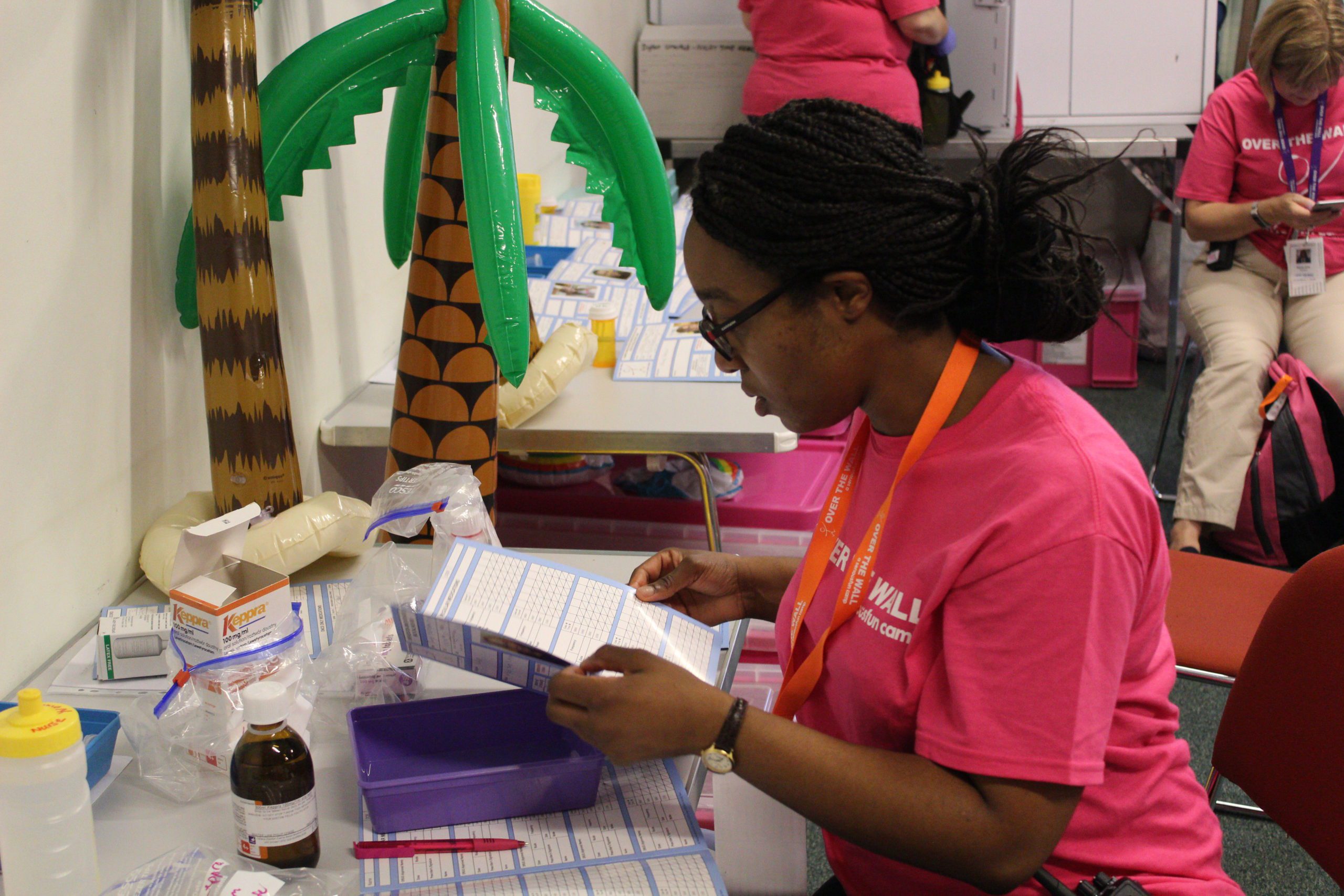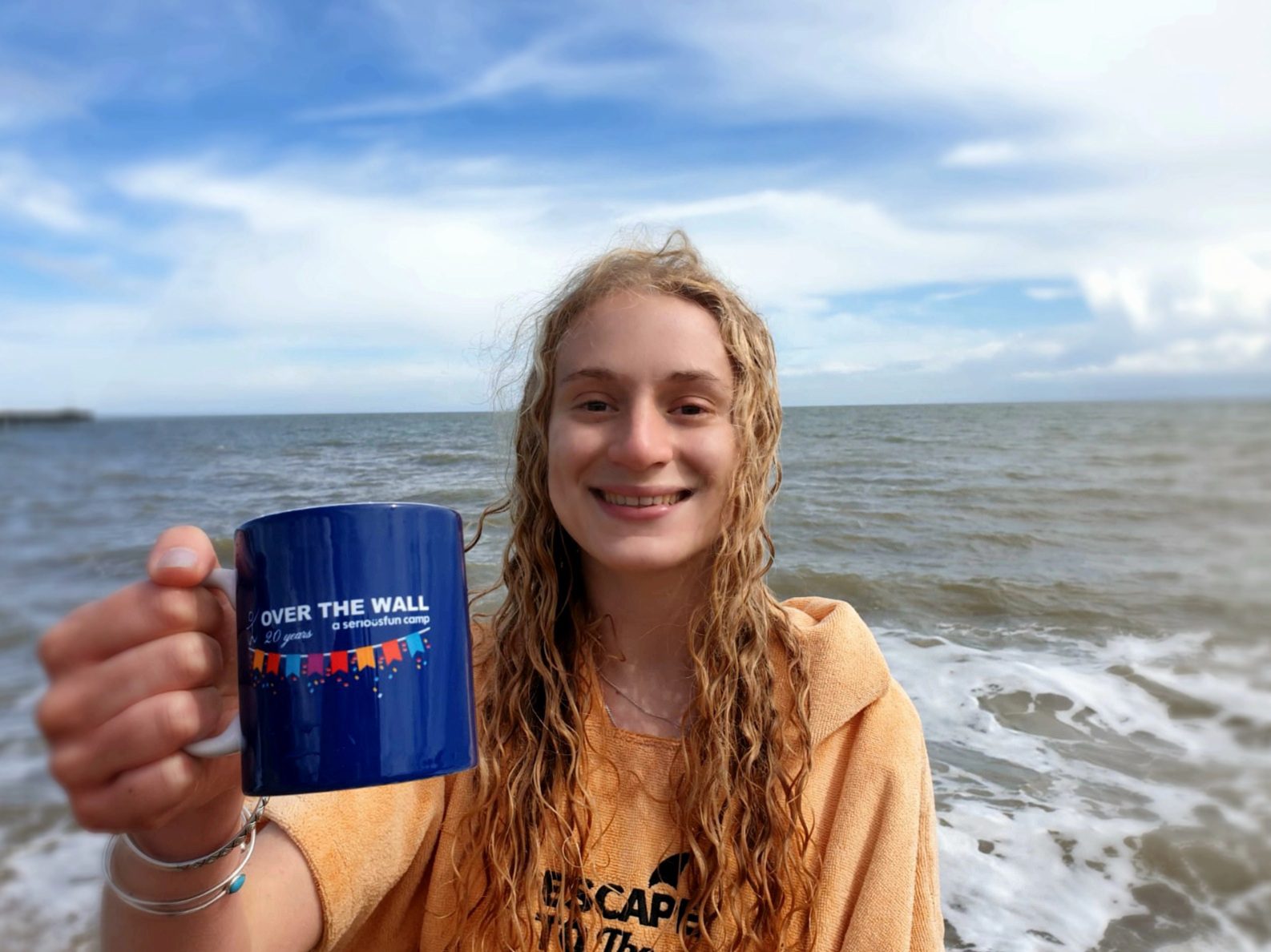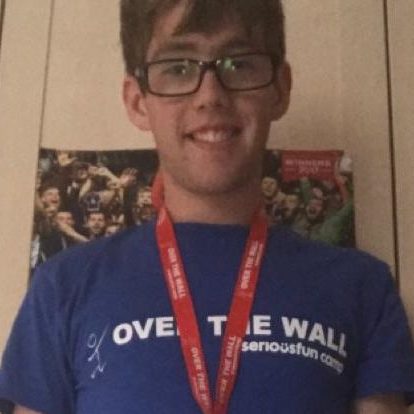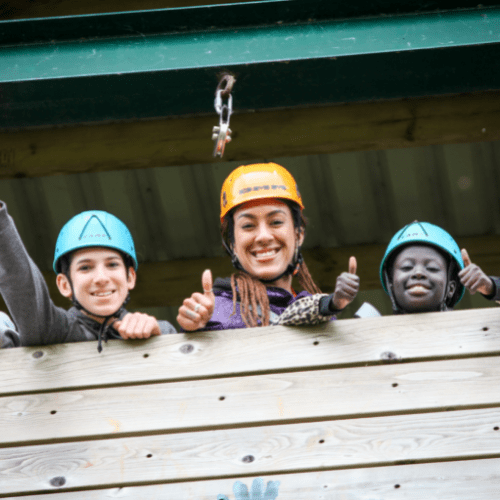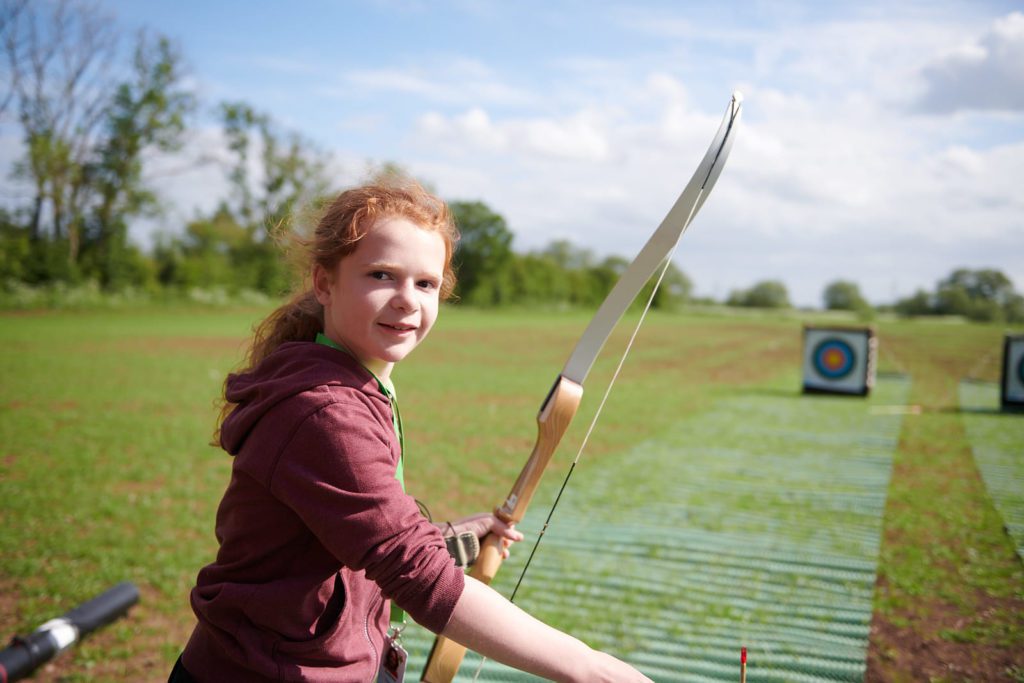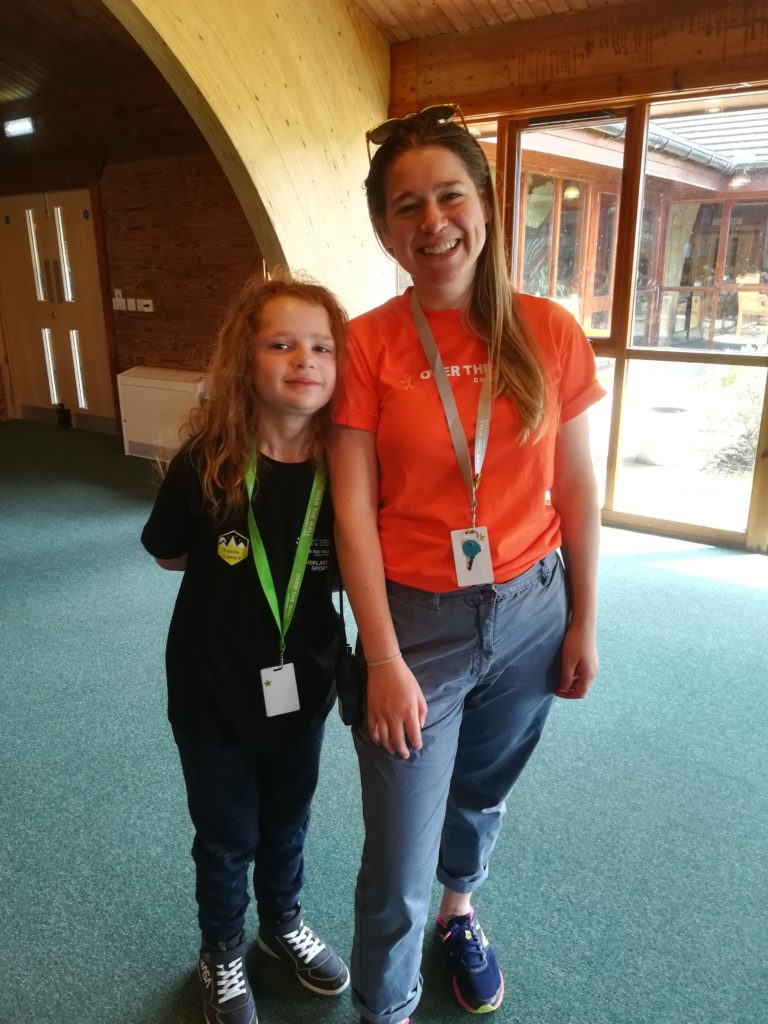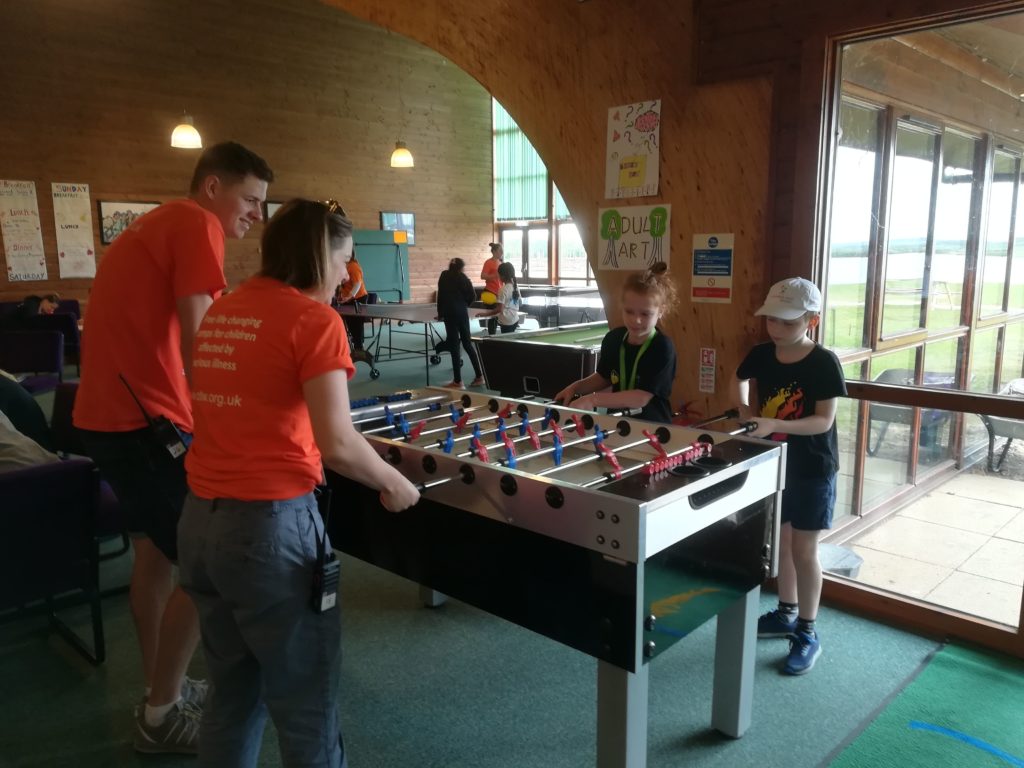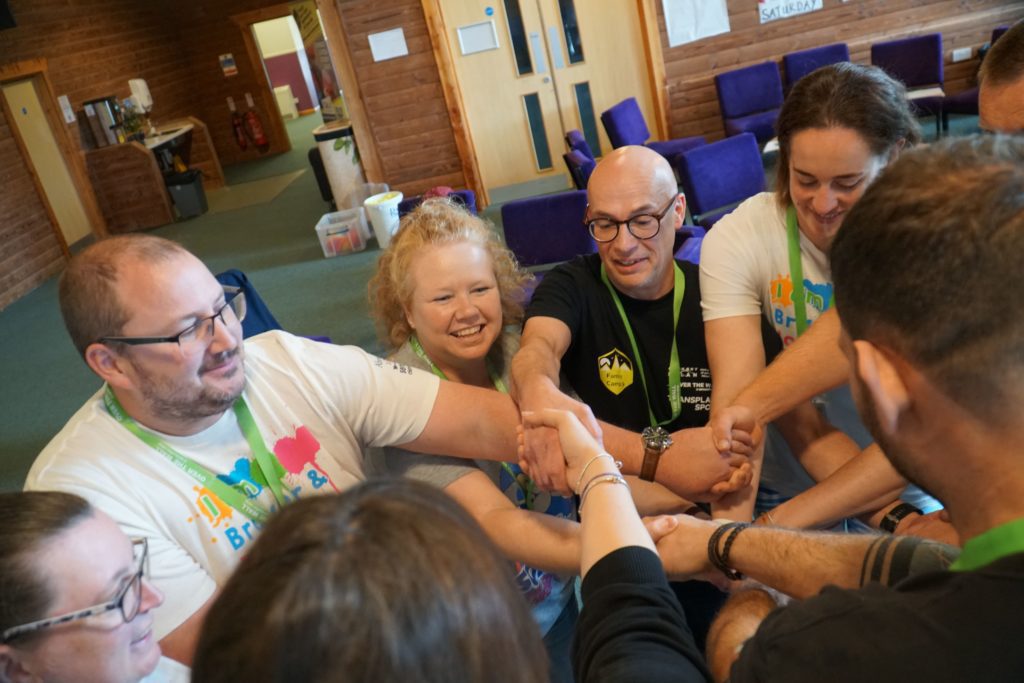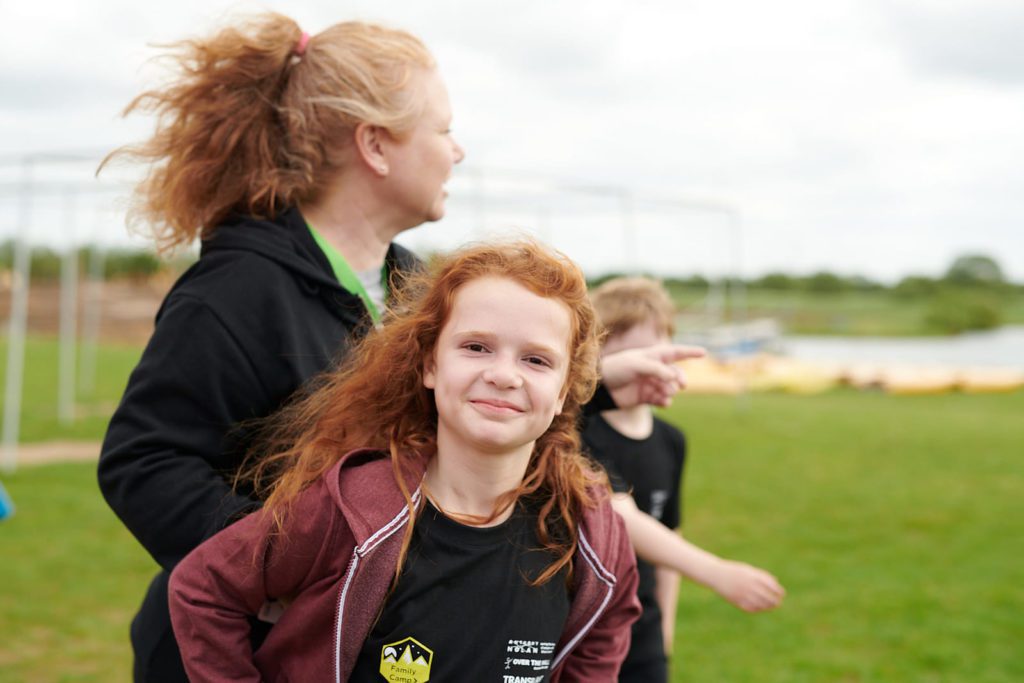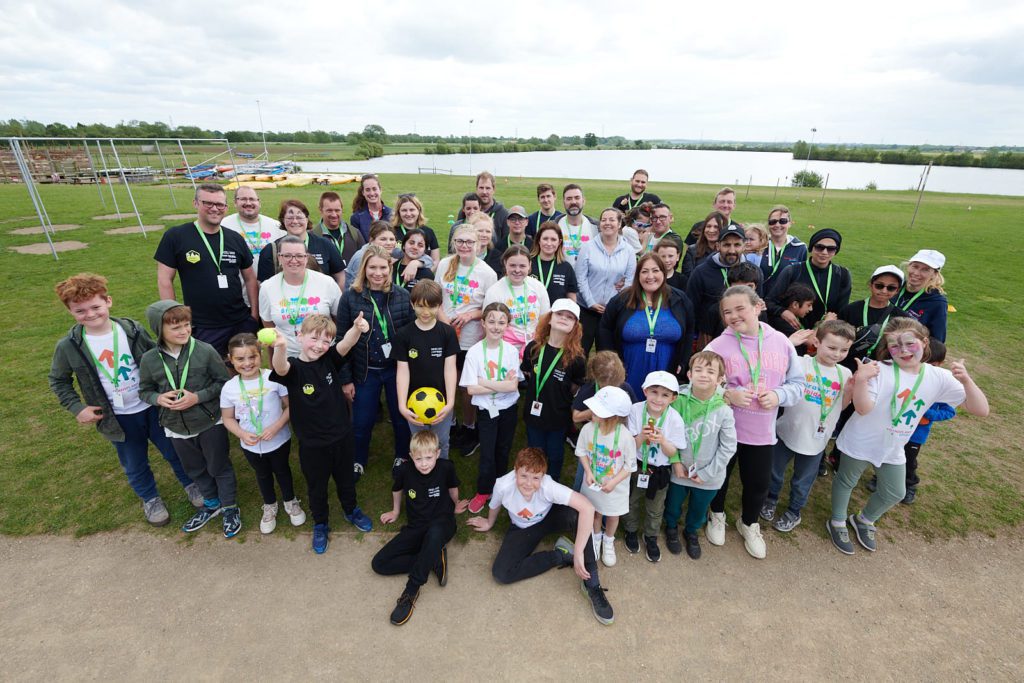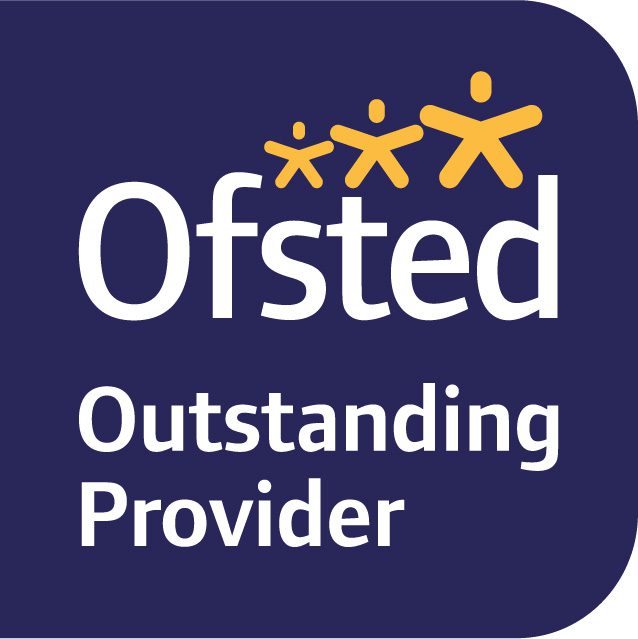Hear from Drew’s Mum, Helen, about their experience at Anthony Nolan Family Camp. The camp is a residential activity camp for families with children or young people who have received a bone marrow/stem cell transplant or organ transplant. Drew was diagnosed with Bone Marrow Failure Syndrome Four, a rare condition, when he was very young. He received a sibling match bone marrow transplant nearly nine years ago.
Fun for all the family!
It’s really difficult to explain how camp feels, but it’s daft, giggly and ridiculous! Everyone gets to do what they want to do whilst still being together as a family. It’s a really nice feeling to go to camp.
We did everything and anything at camp–we were keen to get involved as much as possible. I remember an activity called ‘crate stack’, a team game where you have to play with other families you’ve never met before. We played a bizarre game that was like netball on a trampoline! We also did zip wiring, archery, football, and obstacle courses (that I think I’d still be stuck on if I hadn’t had assistance)! Going down the zip wire was really fun. My husband was scared of heights but we both went down it, so it’s not just about the campers conquering their fears, but us too!
At the first camp we went to, Drew had a feeding tube in. At school, he’s not allowed to do anything where he’d have to wear a harness. But because we were with him at camp, he got to do all those activities he’d missed out on. It blew his mind that he was allowed to put a harness on–that was an absolute game changer for his confidence.
The best thing for us was seeing Drew do the things he’s usually restricted from doing. If you took all these children back to when they were having their treatment and told them they were going to be swinging from ropes they wouldn’t believe you!
Developing independence
At an Anthony Nolan Family Camp, a volunteer is assigned to look after your family. When you have a child with a health challenge, you can get quite protective. You’ve never trusted someone with your children before. When you get to camp though, the confidence you have in the volunteers and staff to look after them is almost overwhelming. It helps that the focus isn’t the health challenge, coming to camp is about having fun!
It’s very freeing, I felt very confident in the volunteers to look after our children even though we’d never met them before. It felt like they’d been part of our family forever. Drew worshipped the volunteers assigned to us, because they were there for him.
Because of Drew’s mobility issues, the thought of him carrying a tray of food and drink at dinnertime just petrified me, but at camp there was always someone else there with him. It was lovely to watch, and not have to do it for him. We were always worried he’d drop it, but at camp they didn’t care, it was very much an environment of ‘let them do what they want to do’. So even that independence away from parents and carers was encouraged. The whole thing is just great!
You could send us to these camp sites without the volunteers and staff, but it wouldn’t be the same experience without your 1:1 person. It was a real team effort and they’re all absolutely wonderful people! The crew that work these places are just phenomenal, their enthusiasm and their energy is unmatched.
New experiences
Drew had always felt very sidelined when it came to activities at school. He’s always felt like he can’t do ‘everything’ like his peers can. I think he’s always felt left out because the other children were so different to him.
So to come to camp, where everyone was on his level, was a real game changer for him. He couldn’t stop talking about it once we got home! He was a completely different child, the confidence in him was amazing. There were just no restrictions on what he could do at camp. It’s a very different environment–all very ‘can-do’ rather than the ‘can’t do’ that he’s used to. It was a very positive experience for him. I think he’d be zip wiring every weekend if there was one local to us! It was the volunteers and staff at camp having the time and the patience for him to do things at his own pace that made the difference. I don’t think a school residential trip could ever offer him that chance to try new things and to do them at his own pace.
Connecting with others
Even though Drew’s relatively well, he has additional needs. When you’ve got a child with a health challenge, people don’t want to take them off your hands. You have to be a grown up all of the time when you have an ill child. I try to add humour to a lot of my life when possible, but not all medical professionals think it’s funny! But when you’ve been going through the process so long – you have to laugh otherwise you’ll cry. You don’t always get a choice with these things so you just have to get through it. Camp is safe in the whole sense of the word – what happens at camp stays at camp! You can have fun and not feel judged because everyone understands what it’s like.
There were lots of opportunities to break out into small groups of adults to share our experiences if we wanted to. At Anthony Nolan Family Camp, our experiences were all quite similar. Knowing that everybody there has been through something similar helps you let go of everything because you’re not worried about being judged. It’s weird meeting others who are in the same rubbish club, but it was also a relief. We swapped stories, asked each other questions, it helped us feel so much less alone.
Drew's transplant journey
Drew was ill at birth, and the first three-and-a-half years of his life before he had a transplant were rubbish. He had low haemoglobin levels from the start, but they didn’t know what was going on.
I took Drew to hospital three times a week in the first five weeks after he was born. He was always so cold and anaemic that they used to have to put his tiny feet into warm water to increase the blood flow. I’d walk my daughter to school in the morning and she wouldn’t know who would be picking her up in the afternoon because anything could happen with Drew between that time. I went through two living room carpets because Drew was sick so often.
We spent a couple of years not really knowing what was going on. We ended up at Alder Hey Children’s Hospital, where he had lots of blood tests and transfusions. Eventually they came up with a probable diagnosis of Diamond-Blackfan anaemia.
In October 2013, they announced to us that Drew would have to go into transplant. It looked like he was going into full bone marrow failure. In the meantime, this was affecting the rest of Drew’s body. He was tube-fed and he didn’t walk or talk well.
They tested Alexandra, his older sister, and thankfully she was a sibling match. We’re very grateful for that. Before his transplant in Manchester, a blood sample ended up at St Bartholomew’s Hospital in London. They came back with the diagnosis of Bone Marrow Failure Syndrome Four. All the other patients with it have been transplanted. He’s the sixth person in the world to have it, which is why he didn’t quite match the Diamond-Blackfan Anaemia treatment pathway. He’s the first patient to have it who doesn’t have related parents, the others are within communities that marry cousins or close relatives.
My daughter saved my son's life
If you spoke to Alexandra about her donating bone marrow, she’d be quite modest. She was 11 at the time and remains very matter-of-fact about it. It’s something she did because it was the right thing to do. Alexandra would’ve done it for anyone, partly because the procedure is so simple. She didn’t have any side effects from the procedure – she donated on a Thursday and she was back in school by Monday. For stem cell donation, it’s even easier, they just take it out of your blood.
We have a very good prognosis, but if anything was to happen in the future, we know that Alexandra would be there for him. Alexandra and Drew now have the same blood as Alexandra’s donation changed his blood group – it blows my mind! They’ve got a special connection that the rest of us don’t have. There’s seven years between them, but it brings them together. They’d do anything for each other.
They’re opposites but they spent a lot of time together at camp. Drew brings out the best in Alexandra, she did everything at camp because he told her she had to! Camp brought out the best in her too, it helped her relax a bit whilst boosting her confidence. One of the reasons we love going to camp is because we can take our daughter too, who missed out on a lot of stuff because Drew was in hospital so often. These camps are a way we can give back to her – she got to do things she missed out on doing when she was younger – even if she didn’t like my singing or dancing!
I wrote to Blue Peter to tell them that my daughter saved my son’s life, and they sent her a gold Blue Peter badge. That’s what you are when you donate stem cells or bone marrow: you’re a lifesaver. It’s no different to pulling someone out of the water and giving them CPR. You’ve saved a life.
The future is bright
We mark the start of Drew from the day he was transplanted: June 2014. When there’s something he can’t do, we remind ourselves that he’s three-and-a-half years younger than he actually is, because those first three years of his life were so rubbish. We spent that time trying to keep him alive so he could be ready for transplant.
He’s a very social child, very bubbly and he loves being with other children whether they can do the same things or not. He’s not a glass half-full or half-empty kind of person–his glass is brimming. Even though he’s experienced a lot of negatives in his life, he never sees the negative side of anything, he always sees the positive side. He plays for a local football team – which happens to be a disability team – but he plays football and that’s all he sees. Camp gave him the ability to be that bubbly, can-do child that he’s always been.
Due to his condition, Drew has brain damage and short stature, dyspraxia and issues with his fine motor skills. That said, life has gotten to a normal level, nothing stops him from enjoying life. Everything he’s got now is so easy to deal with compared to what he went through in those first three years of life. Whatever happens in the future, he’ll be living it to his best. He doesn’t see himself as any different to anyone else now, especially when he was given the opportunity at camp to do things alongside everyone else. He doesn’t see himself as having any limits. We’re grateful that Drew doesn’t remember much about the years before his transplant because he was so young. That’s probably why he is the way he is. He just gets on with it!
